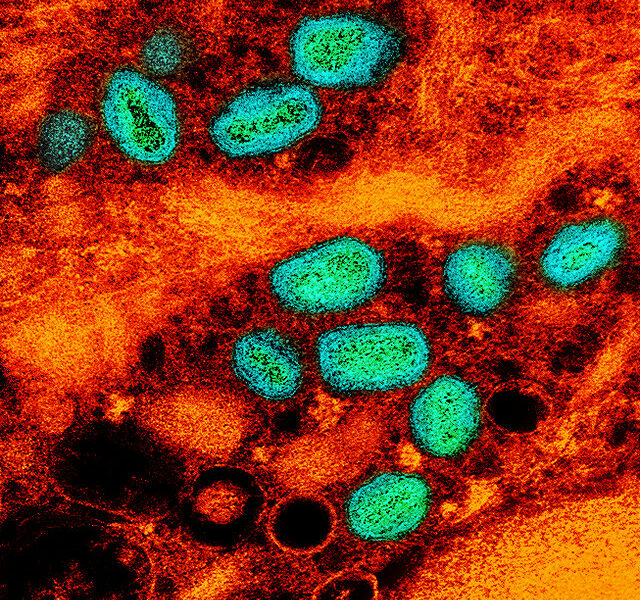On August 18, the adult film industry trade group, Free Speech Coalition, announced a nationwide moratorium on film productions while the industry investigates a syphilis scare. The action is the result of a performer’s decision to continue working after testing positive for syphilis.
Major media outlets report nine cases of syphilis in Los Angeles County. However, when contacted, the Los Angeles County Department of Public Health said that no official numbers had been published yet. Meanwhile, Free Speech Coalition reports that the Adult Production Health and Safety Services (APHSS – a testing program for adult performers and producers created by the Free Speech Coalition) has confirmed only two cases of syphilis in adult film performers.
The Syphilis Scare
Mr. Marcus, patient zero and adult film veteran of 18 years, described the timeline of events in an interview to Steve Javors from Adult Video Network and Dan Miller from XBIZ. Marcus tested positive for syphilis on July 12. He received a penicillin shot on July 13 and was instructed to abstain from sexual activity for seven to ten days. On July 21 he tested positive again. According to Marcus, he had five different tests, and each test came back positive.
Syphilis is a sexually transmitted disease caused by the bacterium Treponema pallidum. Symptoms of syphilis differ by the progression of the disease. In the “primary stage,” “sores” or “chancres” develop where syphilis entered the body. These sores may heal on their own, without treatment. The secondary stage of syphilis is marked by skin rashes, lesions, swollen lymph glands, headaches, weight loss, and fatigue.
If symptoms go untreated, then the third or “latent” stage occurs. This stage is characterized by the disappearance of symptoms, and may last for years. Then the “late” stage begins; the disease may then cause damage to internal organs, or cause paralysis, blindness or dementia.
Marcus continued to test positive because, most likely, his blood was being screened for syphilis antibodies. A certain amount of antibodies stay in the blood stream for a long time after the disease has been successfully treated.
On July 24, Marcus began performing again. He provided producers with altered versions of his test results. In an interview with Ricahrd Abowitz for The Daily Beast, Marcus explained how he folded his tests results so that the positive syphilis result did not show, and photocopied the paper. Eventually, producers became suspicious, and Marcus came clean.
The APHSS immediately began screening performers for syphilis, using rapid plasma reagin (RPR) tests, which look for antibodies in the blood. APHSS (with funding from several adult film production companies) will also be providing prophylactic injections to all performers.
If found in the early stages, syphilis is easy to cure with a single injection of penicillin. According to the CDC, people who receive syphilis treatment should refrain from sexual activity until their sores have healed. To prevent syphilis, CDC recommends condom use.
Condom Controversy
This syphilis scare reignited the heated debate on considerably lax disease control measures practiced in the adult entertainment industry.
In March 2012, Los Angeles became the first city to require all male adult film entertainers to wear condoms during a shoot. However, this ordinance only pertains to films requiring a city permit. Films shot in studios are not subject to the same condition.
Condom use is exceptionally low in heterosexual adult films. A 2007 study published in PLoS Medicine reveals only 17 percent of adult actors reported using condoms on set. Additionally, there is only one production company in Los Angeles that requires condom use.
In contrast, productions featuring men who have sex with men (MSM) maintain stringent condom use policies. Since, according to the PLoS Medicine study, MSM are at an increased risk of HIV and a large number of these performers are HIV-positive, condom use is the norm. Unlike the policies for heterosexual adult film actors though, regular testing for STI’s is not mandatory.
According to the California Occupational Safety and Health Program (Cal/OSHA) however, employers must use feasible controls to protect their employees from coming into contact with blood or other disease-carrying fluids, which include mucus, vaginal secretions, and semen. In the adult entertainment industry, these control methods might include the use of barriers such as condoms and dental dams.
Yet, few adult film companies abide by this regulation, and OSHA does not have the resources to properly enforce it.
The condom debate between public health advocates and adult production companies raises several questions. How do individual rights play into this? Can employees chose not to use condoms or does the protection of public health prevail? What about the impact on viewers? Like smoking on screen, does not using a condom influence viewer behavior? How does condom use affect the financial health of the industry and the state of California?
Condom protestors maintain that the requirement would cause the billion-dollar industry to leave California, significantly impacting its economy. Further, porn in which condoms are used is not as popular among consumers, according to Diane Duke, executive director of the Free Speech Coalition.
Condom protestors also argue that external regulation will force performers to go underground, where almost no regulation exists. Last, protestors believe that performers are aware and well-educated of the risks and capable of making autonomous decisions.
On the flip side, one could argue that the financial risks are minimal. First, Cal/OSHA does not require barriers (condoms) to be visible in the final product, voiding Duke’s concerns. Second, evidence from sex-related industries suggest that condom regulation does not always cause financial loss. California-based adult entertainment production company, Wicked, has successfully maintained a pro-condom policy for 12 years. Brazil’s porn industry, while unregulated, is one of the world’s largest and approximately 80 percent of films are made with actors using condoms.
In November 2012, Los Angeles County voters will decide whether or not porn actors should be required to use condoms during filming. If the ballot measure is approved, similar to regulations for tattoo parlors and restaurants, the county would be able to issues fines or revoke health permits for noncompliance with regulations.

